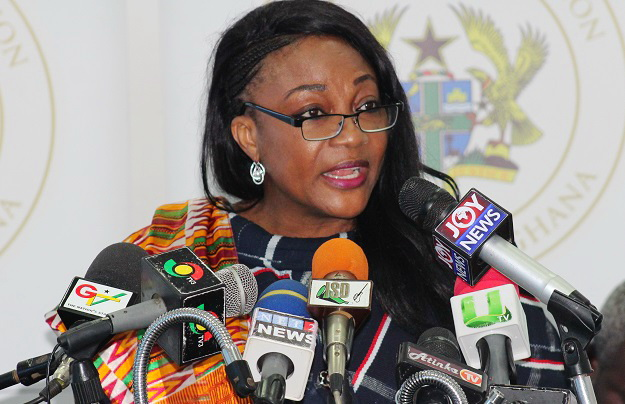
Patronise products made by PWDs - Otiko Djaba
The Executive Director of the Henry Djaba Memorial Foundation, Ms Otiko Afisah Djaba, has encouraged Ghanaians to patronise products locally made by persons living with disability (PWDs).
“Patronising products made by people living with disability is a sure way of taking them off the streets,” she said.
Advertisement
She said this at the maiden Ability Fair organised by the foundation in partnership with the United Nations Population Fund (UNFPA) in Accra last Friday.
The Ability Fair is aimed at showcasing the hidden talents of PWDs and portraying to the public that disability is not inability.
Fair
Ms Djaba also urged the participants in the fair to keep up the work they were doing and not to allow their disability to hinder them in anyway.
“Seeing all the beautiful craft work showcased by the participants who are all persons with disability is a great sign that when we push and give them the needed resources, they will do well in their fields of craft and that is what this fair aims to achieve,” the former Minister of Gender, Children and Social Protection said.
The fair brought together PWDs in Accra, Akropong in the Eastern Region and other places to showcase their talent through their craft works such as bead products, cosmetics, catering services, hand-woven kente, slippers for both gender and theatrical performances including dancing and singing.
Support
The Brand Ambassadors for the fair, Okyeame Kwame, Obour, Nana Ama McBrown among other celebrities, also called for support for PWDs, urging that their services should be patronised more to equip them to also teach their friends in order to eradicate streetism.
One of the exhibitors at the fair, Mr Joseph Yanney, who deals in locally made fabric products such as purse, market bags among others also called for support for the industry.
“Most people are scared to patronise our products due to our disability. This fair would also give us the chance to prove that disability is not contagious and that patronising our products is a way of helping us not to go back onto the street,” he said.
Health
The Programme Analyst of the UNFPA, Ms Dela Bright, who read a speech on behalf of the Country Representative, Mr Niyi Ojuolape, stated that equal opportunities in health care should be given to PWDs.
“Promoting equal opportunity in all aspects and inclusion of people living with disability in all decisions is central to social and economic development growth of any society or nation,” she said.
She added that the fair should be able to create a safe environment and provide marketing and self-employment opportunities for PWDs as the COVID-19 pandemic had ravaged the world, giving bitter experiences to businesses.
The participants and visitors in the fair were also screened for hepatitis B, eye and ear and were offered some counselling.



